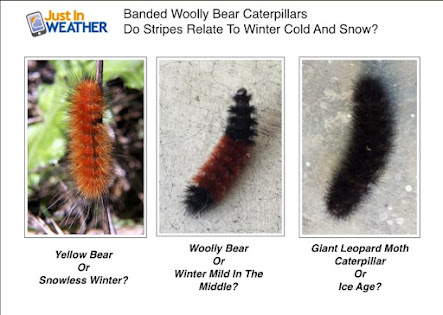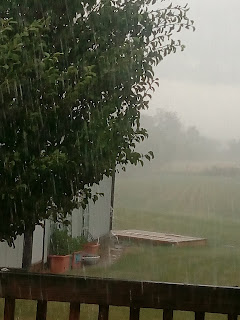The Legend of the Woolly Worm.
“Woolly worms” AKA Woolly Bear Caterpillars are said to be able to predict the weather, Specifically the winter weather. Woolly Bears aren’t worms at all, but caterpillars. They will, one Spring day, turn into the beautiful Isabella Tiger Moth and flutter around your outdoor lights in the summer months. However, it is in these cooler, fall months that they are truly famous for their sightings.
 |
| The Isabella Tiger Moth: formerly known as the Woolly Bear Caterpillar |
Woolly Bears have a distinct color pattern. Typically the heads and tails are black and the middle sections are rust-colored. How you use this creature to predict the coming winter relies totally on these bands.
If the black bands are thin with a wide rust middle, you can predict the winter will be mild.
If the black bands are larger with a smaller rust middle, you can assume the opposite will be true.
Sometimes a black band is larger on one end than the other, some people believe that indicates the corresponding beginning or end of winter will be more severe.
***It is also important to note that solid black, brown, yellow, or white caterpillars are not woolly bears and are not to be used for predicting the winter. They are an entirely different species, and their stripes don’t change. 
Yellow Bear & Giant Leopard Moth Caterpillars are not the same species as the Woolly Bear Caterpillar and should not be used for forecasting. [Copyright: Just In Weather]
And there you have it, a quick overview of the legend of the Woolly Worm.
For more information:
https://www.almanac.com/woolly-bear-caterpillars-and-weather-prediction
 |
| A mild start and a more severe end to winter? |














